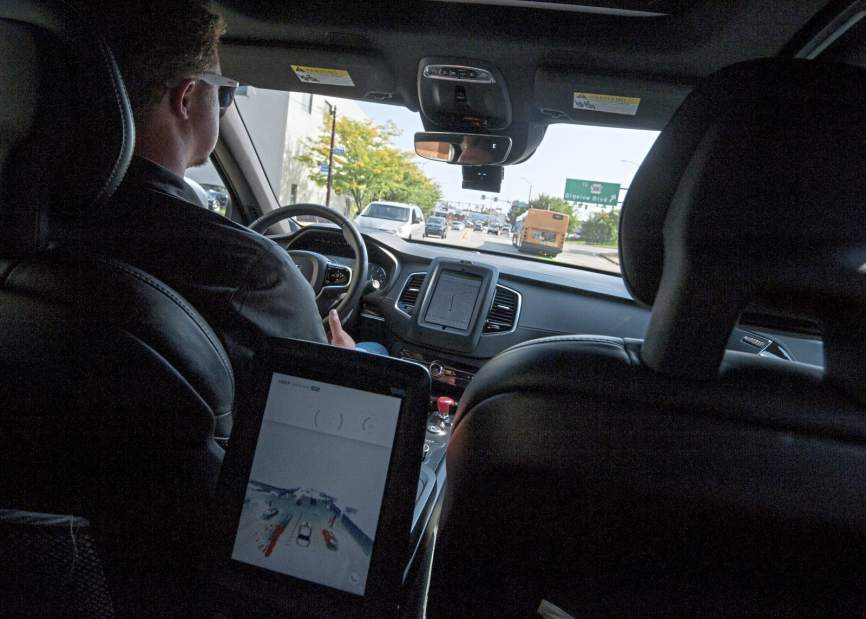Uber resumes testing of self-driving cars in Pittsburgh
Uber resumed testing its self-driving cars in Pittsburgh on Thursday.
Only a couple of cars returned to the road, the company said.
The cars will only drive in the Strip District as the company ramps up testing.
Uber’s fleet of autonomous Volvo SUVs had been grounded for most of 2018 following a fatal crash involving one of Uber’s self-driving cars in Tempe, Arizona. Before that, they could be seen daily throughout the city.
“Over the past nine months, we’ve made safety core to everything we do,” Eric Meyhofer, head of Uber’s Advanced Technologies Group, wrote in a blog post the company published Thursday. “Now we are ready to move forward.”
The mayor’s office, which sought to put strict limits on Uber’s testing in the city, was notified.
“The city and Uber have been in regular communication about their safety upgrades and we’re pleased they sought the voluntary testing approval from the state,” Tim McNulty, a spokesman for the Mayor Bill Peduto, said in a statement. “As they have accepted established state guidelines, demonstrated transparency, and conformed to our expectations in addressing the unique conditions of a complex urban environment, the city is satisfied that self-driving testing operations by Uber will not introduce an increased level of safety risk in Pittsburgh.”
Uber sought a voluntary approval from PennDOT to resume testing. PennDOT approved Uber’s testing plans.
The cars will only test during the day during the week and not during bad weather, company said. They will not pick up passengers at this time as they previously had done.
An Uber SUV operating in autonomous mode hit and killed a woman walking her bike across a dark Tempe street in March. Uber shut down its testing across the country and eventually pulled out of Arizona where it has a major operations center.
The crash sparked a top-down internal review of Uber’s self-driving car program as well as external investigations.
All Uber cars operating in self-driving mode will have Volvo’s Automatic Emergency Braking technology activated. The Volvo-installed safety system was de-activated in the car that crashed in Arizona.
Uber also installed driver monitoring equipment, retrained its safety drivers, put a second safety engineer back in the car and made software improvements to help the cars make better decisions faster. Each car must also pass scenarios on Uber’s test track in Hazelwood.
In addition to resuming self-driving testing in Pittsburgh, Uber will resume manual testing in Toronto and San Francisco.
Aaron Aupperlee is a Tribune-Review staff writer. You can contact Aaron at 412-336-8448, aaupperlee@tribweb.com or via Twitter @tinynotebook.


